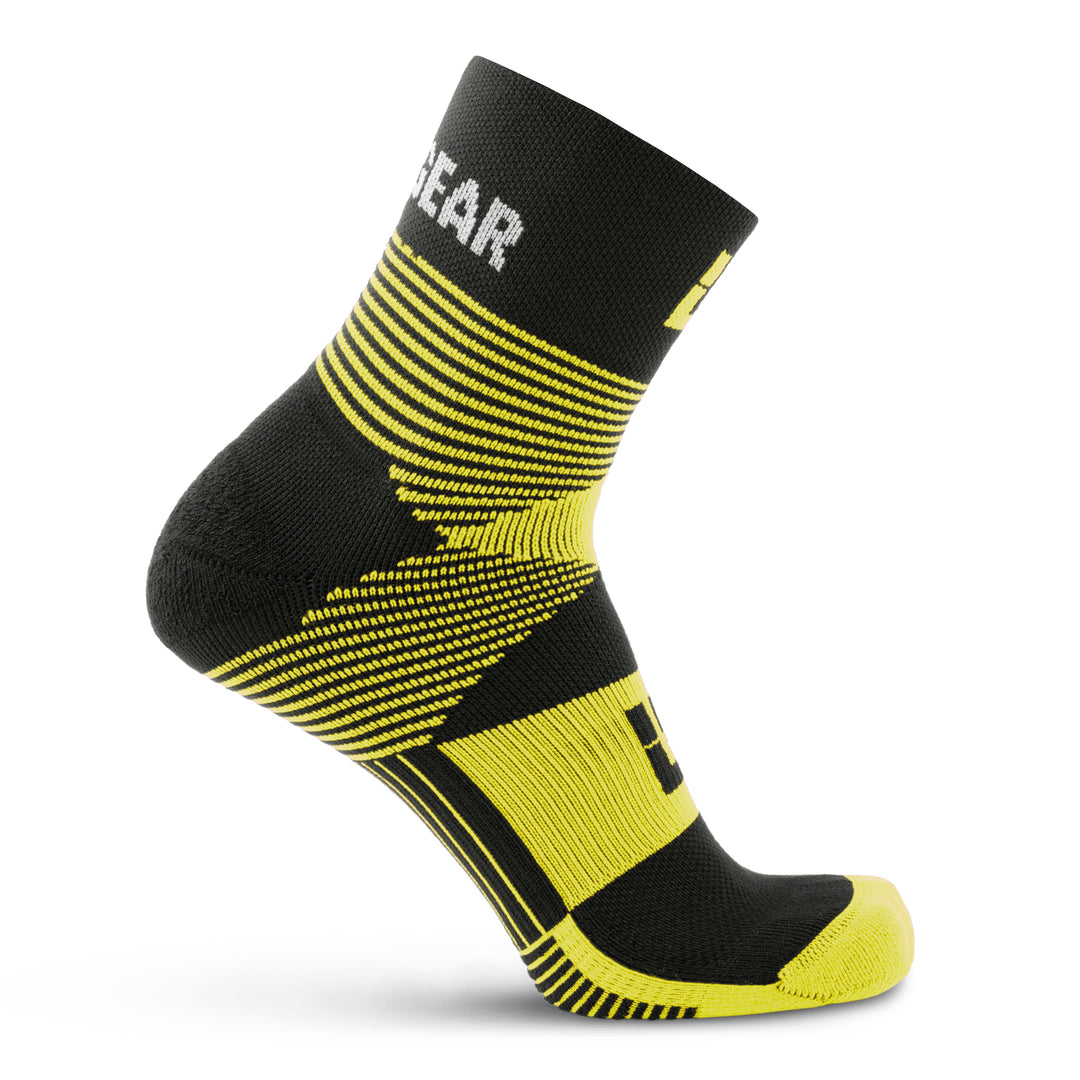Seven Reasons Why Obstacle-Course Racing Can Prepare You for the Game of Life
If you’re reading this, you probably feel stuck. You probably dove into the age-old questions: “What now? Where do I go from here?” and came up empty. Whether you just got that inexplicable New Year itch of self-improvement or you’ve just slogged triumphantly from the good end of your last goal race, you’re a little uncertain of your next move.
Your next move is easy. A tougher race.
Don’t let yourself slide into the uneasy aimlessness of not setting that next goal. Gearing up for a race is more than training your muscles. It trains your mind, your spirit, your grit. So quit waiting for the right moment to start. It was yesterday. It was last year. It was back when your knees didn’t pop and your job wasn't as demanding. The second best time is RIGHT NOW. (Why not start with MudGear’s Free 12-Week Fitness Plan?)
You know your best self emerges when you’re working hard for what you want, so let’s check out just a few of the lessons OCR teaches that apply outside of the racing world.
1. Setting goals (with payoff)
The proudest, most successful, most confident I ever felt was during my training cycles. There’s just something about a fitness-based deadline- you can’t wait to do the work at the last minute. Training your body requires consistency. If you get used to consistency in your fitness, it spills over to the rest of your life.
Setting goals is challenging. It’s HARD to speak out and confirm your intention to do something. So many of us fall victim to thinking “If I just don't say anything, If I keep it private, then no one will know if I fail.” Uh, nope. Guess who’ll still know? Yeah, it’s you. Pull it together and set the goal.
There’s a lot of advice on setting goals and the common thread is that it’s not enough to just set goals. You have to set GOOD goals. Good goals are specific, measurable, challenging, and achievable. That’s the dogma. I’ll go farther. Good goals need to be something you can be held accountable for. If you sign up for a future race, suddenly you’re accountable. If the day comes and you haven’t prepared, bye-bye deposit. Bye-bye pride. During my cycles, sometimes the only thing that kept me accountable was knowing that if I didn’t put the work in, all of my peers would watch me fail while they succeeded. Maybe this kind of motivation is a little more toxic than most, but it has results.
Finally, pick a goal with payoff. If you’re running your first race, don't pick a race that laps until failure. Have a finish line- both in space and in time. Your race is an immovable deadline. Your finish line means success.
2. Pushing past the pain
Life has some challenges. In obstacle course racing, your challenges will probably be more literal. I’ve splashed through mudpits dug under cow patties. It adds a mental layer to the obstacle. But even if your race isn’t through greener pastures, you’re going to encounter some patties. There will be times when training just doesn't fit in your schedule. There may be injuries, conflicts, people who don’t believe in you, and times when you feel like giving up. Those are your challenges.
If you’ve set solid goals, they can help push past some of those challenges. No time? Well, the deadline is drawing near. Better figure out an earlier morning, a later night, or a longer lunch break. Vacation feels so easy to relax and forget about your goals? Tick-tock. Find a sense of urgency and set aside the time you need to focus on yourself.
Your first goal will always have the most temptation to quit. But then you’ll taste success for the first time and suddenly, you’ll have a lot more confidence in your ability to pull through. That success will carry you to your next race; your next goal.
If you think ANY of this only applies to Obstacle Course Racing, read on. When have you ever gotten what you wanted without your fair share of difficulties? Have you ever landed a promotion by doing the bare minimum? Did you land your spouse without any effort? If you look back, there’s already so much you’ve overcome. Hey, math homework never did itself. Every baby step you took into the unknown came with its own shovel full of challenges. Not to be a drag, but that doesn't stop in the future. You just get better at moving the shovel.
Dealing with obstacles on the way to your finish line is a lot easier than the obstacles you’ll face on the way to that next major life event. Invest in yourself already and get this practice in!
3. Finding your stride
Once you’ve set your finish line and dealt with all the early challenges it throws at you, you’re going to look around and realize you’re moving toward it. Finding your stride is bliss. It’s a flow state. Shoveling that shit means getting rid of what doesn't work for your journey and uncovering what does. Maybe you can’t always get a full workout in, but you know you can dedicate 20 minutes a day. Maybe you just can't force yourself up before work to get after your goals, but you can meal prep on the weekends and use the saved time to wedge in a workout around dinner. You’ll find what works, and for the most part, it’ll keep working.
Here's the kicker about finding your stride in a long-term goal, though. You can’t use your goal as an excuse to pass off your other responsibilities. This seems like a no-brainer. You probably can’t take time off work or quit your job to train for a race. But you also can’t expect your partner to take care of your usual duties while you take an hour to run. Sometimes, setting a goal means taking on new responsibilities. Committing to an hour a day might mean finding someone to look after the kids. Biking to work might mean learning to bike with an umbrella. The deal is, finding balance between what you’ve BEEN doing and what you’re doing NOW is part of finding your stride. You can't just add pieces to a puzzle and expect them to fit.
4. Flexing your muscles
When you hit your stride and get into the rhythm of pursuing your goals, you make progress. Progress feels incredible. At some point in training for a race, you’ll finally notice, “Hey, I’m better than I was when I started!” Sometimes, that first measure of change can be equally as rewarding as hitting the finish line. In my last training cycle, I started out able to do nine push-ups. Less than a month in, I consistently hit ten or more. By my finish line, I could do 60. But I don’t remember going from 59 to 60- I remember going from nine to ten.
To flex your muscles in life you have to notice your little wins and focus on them. Sure, goal setting involves looking at progress in the big picture, but if I had beaten myself up about being at only ten push-ups after several weeks of work, I never would have made it to eleven- let alone 60. Flex your little wins and stay strong until you reach the main goal.
5. Learning from failure
This is a difficult one. There’s no sugarcoating it. Sometimes- in races, in life- we fail. Failure SUCKS. Here’s my take on learning from it.
First, I’ve failed. At the end of my first training cycle, I crossed the finish line in dead last. At the end of my second training cycle, dead last. That hurt. After six months of training where I felt like I’d given it my all, I was worse than everybody else in the race.
But here we go. Let me reframe. Running was one part of my personal finish line for these cycles. Sure, I failed to finish with my competitors, but over the course of my training, I had decreased my mile time by almost two minutes. In the other sections of my event, I excelled. When I crossed the final finish line after testing, my 60 push-ups, and just flat-out outlasting everyone else, I was in first place.
Now that’s a crazy story. Not every story ends with “I may have been the worst runner out there but I won the event.” But it’s far more achievable to reframe with “I didn’t meet my goal time, but I progressed towards it significantly since I started training” or “After my second cycle, I was only seconds behind the next guy.” It’s manageable to find enough of a success story to not end the journey when you don’t meet your original goal. On my third training cycle, someone finished after me. I call that progress.
There’s reframing your failures to recognize your successes and then there's learning from them. The two aren't exactly the same. Learning requires looking at successes and failures with honest appraisal. I did well on my push-ups. I did poorly on my running. For my third cycle, I delegated much more of my time to running because I knew that the push-ups came easier for me. Of course, this is a good strategy outside of fitness goals too. If you make a resolution to eat healthier and find that making healthy meals is easy but you fall out of the practice because you hate washing dishes, figure out some meals that only take one pot. Recognize your weaknesses and accommodate them so that you can keep utilizing your strengths.
6. Celebrating success(es)
When you set a goal, you think about how you’ll celebrate achieving it. In the moment of setting it, you think less about the process and difficulty of getting there. As you might have picked up on, I recommend that you celebrate every success. You’ll have little ones and big ones. The little ones also need to be recognized.
It can be so easy to lose track of progress because we as humans are guilty of looking for the negatives. We will always see the weight that won't come off, the interminable distance to our end goal, the ways we fail every day. We have to also focus on the ways we succeed. There is too much negativity already out in the world to focus on our own shortcomings. I’m not saying ignore your failures- by all means, find your shit and shovel it. But dwelling on failures should only be to plan how to do better in the future. Successes, truly all successes, should be celebrated. Every time you meet a daily goal or see progress towards a long-term one, you should give three cheers for yourself. Positive thoughts keep you moving towards your goals. Negative thoughts cripple you with self-doubt. The choice is simple, even if the practice can be difficult.
Pro Tip: Why not celebrate with a new pair of OCR socks or other OCR Gear from MudGear?
7. Creating positive cycles for a better you
You may overlook the most crucial moment in your journey to your finish line. That moment is right after you cross it. If your goal is to finish a Spartan race, this moment is right after that finisher medal hits your chest. You’ve succeeded. Now what?
It’s easy to fall into complacency after achieving a goal. My advice is to keep your momentum going. Set that next goal while you’re still riding the high of achieving the current one. Never give yourself time to lose the work you’ve put in. Making a goal and working towards it is an investment towards your next goal. And your next. And all the goals after that. Once you’ve proven to yourself that success is an option, failure suddenly is not. You’re a finisher. Get out there and give yourself something to finish.














Leave a comment